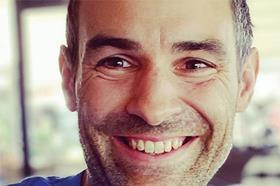Ahead of Mental Health Awareness Week in May, Nick Bloy assesses the impact of overworking on the wellbeing of those in the legal sector

I am writing this in the wake of the coroner’s report into Vanessa Ford’s tragic death at the age of only 47. Vanessa was a successful partner at international law firm Pinsent Masons (where she had worked since 2011) as well as a wife and mother of two sons. And yet, what looked like success on the outside must, I can only assume, have felt very different to Vanessa, who, according to the coroner, experienced an acute mental health crisis just a week after the completion of a deal.
In the lead-up to her death, Vanessa was working 18-hour days, having recently completed the sale of the Everton Football Club to 777 Partners, a US private equity firm. What struck me from reading the reports and articles that ensued is the statement from her former manager, who noted that: “Nobody had any concerns around the pressure that Vanessa was under.” She was, he continued, “very positive” and “very proud of the work she had done”.
Perhaps therein lies the problem: in many law firms, the idea of working 18-hour days – for weeks or even months on end – doesn’t appear to raise any concerns. Typically, it is a badge of honour and almost an expectation of what it takes to be successful as a lawyer.
Burnout in the profession
A few years ago, I was fortunate enough to be part of the research committee for LawCare’s groundbreaking research Life in the Law, which looked at how the culture and practice of law impacts mental health. LawCare’s research identified that legal professionals are at high risk of burnout – on par with the levels faced by medical staff at the height of the COVID-19 pandemic. It was a groundbreaking study in the sense that, though many people had been talking about burnout, we actually measured it, using a validated scale to assess contributing factors such as work intensity, seniority, gender, psychological safety and sleep deprivation (among other metrics).
What was interesting, albeit unsurprising, is that sleep duration was inversely correlated with burnout – that is, the less you sleep, the greater your risk of burnout. From a biological perspective, this makes sense; we need sleep to repair and replenish the cells in our bodies. So, when we deprive ourselves of sleep, we increase the amount of stress our brain and body experiences. Doing so puts us in a heightened state of fight or flight, which explains why studies have found that our amygdala (the brain’s threat-detection system) increases its activity by up to 60% when we are sleep deprived. We enter self-preservation mode, both in the way our body ramps up levels of adrenaline and cortisol ready for an imminent threat, and in the way our brain processes the world around us in its heightened state of vigilance. In turn, we experience greater levels of anxiety and paranoia.
Chronic levels of stress also produce higher levels of inflammation. Professor Edward Bullmore, head of psychiatry at the University of Cambridge and author of The Inflamed Mind, wrote that, left unchecked, inflammation can lead to mood disorders such as depression. Research shows that this is because neurotransmitters – the brain’s chemical messengers – can begin to act differently due to inflammation caused by prolonged stress. Professor Almuth McDowall, who presented at a Thriving in Law roundtable series I co-hosted for several years with Kayleigh Leonie and Richard Martin, explains how this change in the brain’s biochemistry makes people see the world in a negative light. It becomes a vicious downward cycle. McDowall says: “The more they think negatively, the more it strengthens brain pathways that make it react in that way.”
Erosion from the inside out
Having recently undertaken some renovation work with old wooden beams, I was awestruck by just how strong oak is. You can cut most of the way through a 12-inch beam, leaving less than one inch, and the timber remains strong (and almost impossible to break). And yet, chronic water ingress has a not dissimilar effect on an oak beam as chronic stress has on the human body, weakening it from the inside out. While, on the outside, the beam appears strong, its core is slowly hollowed out until, one day, it can no longer sustain its own weight. People are, by their very nature, incredibly resilient, but chronic stress slowly erodes this resilience from within, just like water weakens oak.
While regularly working 18-hour days may not raise concerns within the sector, it should. An abundance of research shows that our ability to produce good-quality work is limited. The longer we work, the more mistakes we risk making and the longer tasks take us. Not to mention the toll that working such gruelling hours has on the mind and body.
Not only is overworking bad for us, but it is also bad for our clients, who receive poorer value for money. And, ultimately, it is bad for business. Mistakes and inefficiency cost money, as do sickness absence and staff turnover (not to mention, the loss of someone’s life).
All work and no play
A career in law has often required sacrifice – the sacrifice of nights out with friends, nights in with family, or even actual time off while on holiday. But such sacrifices are misplaced. Even if you enjoy your job, 50 hours a week is a relatively universal ceiling, after which “you’re at danger of overworking yourself”, according to McDowall. And there is plenty of research to support the idea that we do better at our jobs when we make time for outside interests and self-care.
Marie Åsberg’s research on burnout led her to the idea of the ‘exhaustion funnel’, to help conceptualise what happens when we lose sight of what matters to us. The more we find ourselves replacing rejuvenating activities – ones that enable us to rest and play (some of our most basic needs) – with work, the closer we get to the bottom of the funnel, which represents burnout and depression. Rather than berate people for wanting a life outside of work, then, we should be actively encouraging and enabling it.
However, the challenge that organisations face is that the easiest way to measure output is the hours worked, even if it is an inherently flawed and inaccurate metric. The entire legal model is based on the billable hour, which remains sacrosanct. For decades, managers have measured team success by the hours they clock up, and bonuses have largely been tied to meeting targets. It is those same erroneous beliefs that continue to fuel the unhealthy behaviours we see within the profession, preventing lawyers from setting sustainable boundaries for themselves and with their clients.
Yet, research spanning the last 100 years, from the munitions factory workers of the first world war to the professional services firm in New Zealand that started a global four-day week movement, has found that people produce less when they overwork compared with when they work a reasonable amount. In the case of munitions factory workers, those clocking up 72 hours each week were producing 10–25% fewer munitions than those working around 50 hours per week, despite them working 20 hours more. Replacing work with rejuvenating activities enables people to bring their best to their work.
Slow progress
In recent years, we’ve seen law firms become signatories to various charters, including the Mindful Business Charter. Pinsent Masons, in fact, was a founding member of the charter, which begs the question: have such initiatives resulted in any meaningful culture change within the profession? Or are they simply tick-box exercises, another accolade that looks good on an annual report or marketing brochure, but means very little to the lawyers at the coalface?
The charter will only be as effective as the leaders who are asked to implement it – and old habits die hard. Behavioural change requires consistent and continuous effort, as well as the desire to change. Most organisations run a workshop or two and expect change to have somehow embedded itself, effortlessly.
Steps to take in your firm
Let this latest death in the profession not be in vain. While the groundswell of emotion from the legal community may have faded in less than a week, this is an opportunity for leaders to be the change that the profession needs to see. If firms genuinely want to create a culture that promotes wellbeing and protects its employees from burnout and excessive stress, then they are going to need to commit time and money into changing the unhealthy beliefs, practices and policies that fuel such unhealthy cultures.
So, what are some steps you can take in your firm?
1. Challenge outdated beliefs
The first step is to challenge outdated and unhealthy beliefs. Cultures don’t change unless people change. Why not start a conversation and see where it leads? Within any partnership model, there will be those who genuinely care about people and want to see a seismic shift in how things are done. The idea isn’t to get everyone onside, but to get enough people onside to challenge the status quo. There is ample evidence that supports the idea that prioritising people over profits leads to more profitable businesses. For that to happen, someone needs to have a clear vision of what is possible.
2. Review potentially harmful policies
The second step is to review any policies that might be harmful and may be fuelling unhealthy behaviours like overworking, such as reward structures and bonus criteria. There is little point having a wellbeing policy touting the benefits of work-life balance if the reward structures promote the exact opposite.
In conjunction with this, promote and reward healthier behaviours; for example, bonuses that recognise exceptional teamwork or values such as kindness, respect and courage.
3. Hold partners accountable
The third step, and by no means an easy one, is to hold partners accountable for their actions or inactions, irrespective of the money they bring into the firm. Often, people’s judgement is clouded by the fact that a toxic individual is too profitable to admonish. Yes, that partner may bring in more money in the short-term. But, in the long-term, they will damage the business and the people who work there by continuing to fuel an unhealthy and unsustainable culture.
Change is possible
Addressing these points would be a good start. However, the risk is that, when all is said and done, we do nothing and nothing changes. Before we all head back to our 18-hour workdays, we should reflect on the fact that no life should ever be lost in the way that Vanessa Ford’s life was lost, or, indeed, Paul Rawlinson’s life in 2019.
Change is possible, and it starts with you.
The Law Society is here to support solicitors and firms during challenging times.
Read our resource page on stress and mental health
Find free helplines for solicitors and staff offered by Practice Advice Service and other support services
















